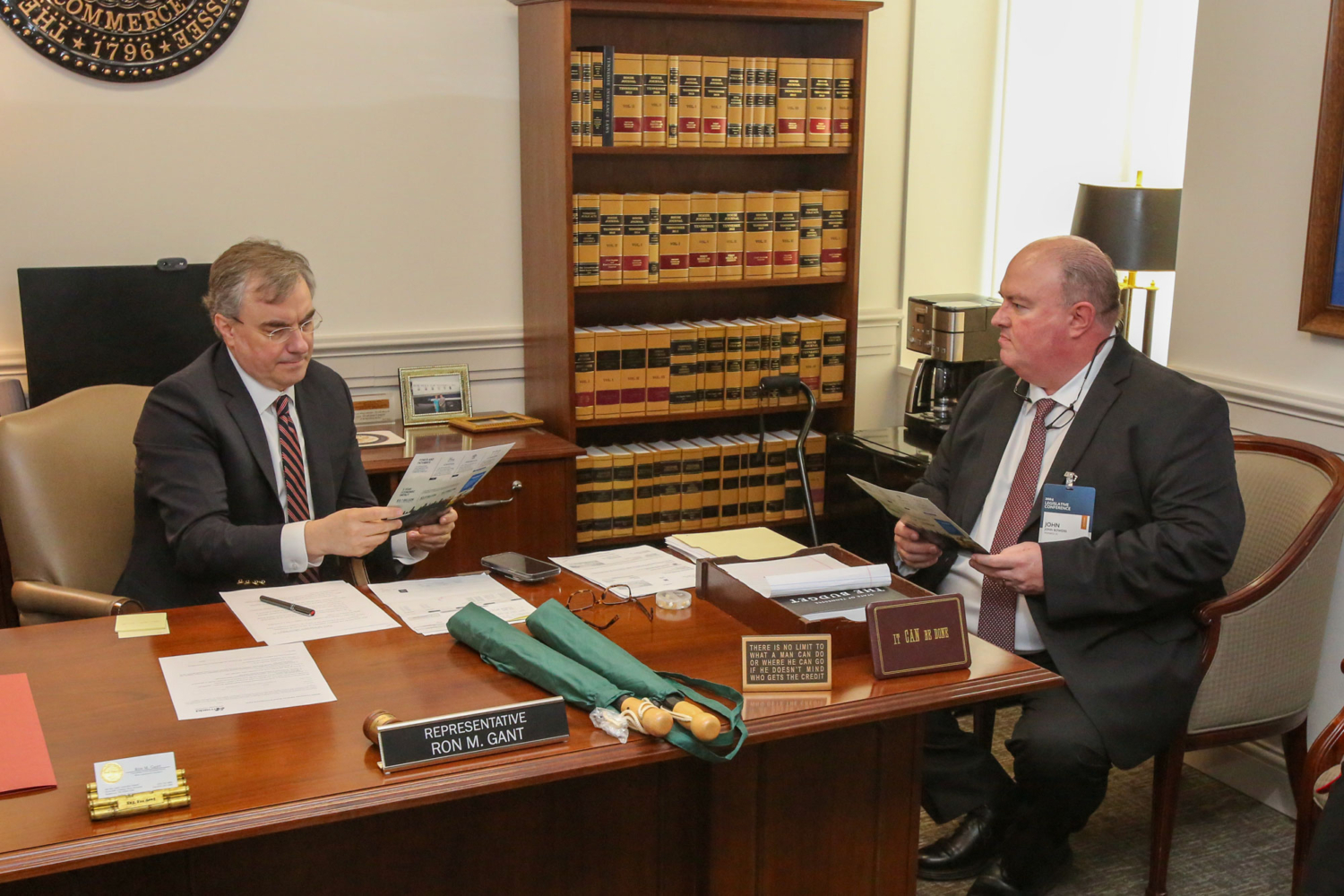NASHVILLE – More than 100 electric cooperative leaders from across the state braved frigid temperatures and snowfall to gather in Nashville on Tuesday and Wednesday, Feb. 18 and 19, for the Tennessee Electric Cooperative Association’s Legislative Conference. Co-op members and employees joined together at the Doubletree Nashville Downtown to learn more about and discuss the pressing issues impacting the communities they serve.
Attendees at the event on Tuesday heard from Josh Thomas, president and founder of Parthenon Strategies, a Nashville-based political and public affairs firm, with an update on the most recent election and a look at what’s to come in 2025. Two panel discussions were also held. One with four women lobbyists who shared their stories on what led them to where they are today. A second panel discussion focused on Tennessee Department of Transportation and how road projects impact electric utilities.
“In order to successfully serve our communities, it is important to fully understand the impact of proposed legislation and simply what’s to come in the political environment,” says Ryan King, vice president of government affairs for TECA. “It is critical that we monitor the impacts of legislation and regulatory actions in order to remain good stewards of the resources with which we have been entrusted.”
On Wednesday, co-op leaders were still able to meet with their legislators in the Cordell Hull State Office Building to stress the important role co-ops play in their communities and provide input on issues that matter to their service areas.
“One of the many strengths of electric cooperatives is the commitment to advocate for the communities we serve,” says Dan Rodamaker, President and CEO of Gibson Electric and chairman of the Tennessee Electric Cooperative Association Board of Trustees. “I appreciate the co-op leaders who took the time to visit with legislators, ensuring they understand the unique challenges and opportunities facing rural and suburban Tennessee. These conversations are essential to shaping policies that protect reliable, affordable energy and strengthen the communities we power.”
TECA’s day on the hill wrapped up with King along with Chris Jones, CEO of from Middle Tennessee Electric, and Mike Partin, CEO of Sequachee Valley Electric Cooperative, representing co-ops across the state during the House Business and Utilities Subcommittee. All three testified on the health of Tennessee’s electric cooperatives.
The Tennessee Electric Cooperative Association provides leadership, advocacy and support for Tennessee’s 23 electric cooperatives and 3 million consumers. The association also publishes The Tennessee Magazine, the state’s most widely circulated periodical. Visit tnelectric.org or tnmagazine.org to learn more.



